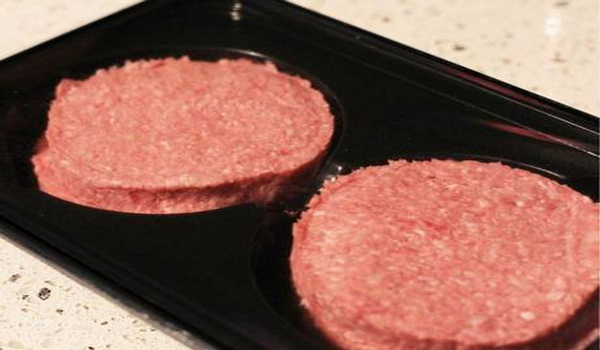News comes amid reports that three more British meat producers have been raided on suspicion of selling horsemeat as beef
Horsemeat was sent to schools, colleges, hospitals and pub and hotels, caterers admitted today, as new evidence emerged of the breadth of the adulteration of beef products across the British Isles.
In the escalating horse meat scandal, cottage pies contaminated with equine DNA were recalled from 47 schools in Lancashire, while the NHS admitted that burgers tainted with horse were supplied to hospitals in Northern Ireland.

Whitbread – which owns Premier Inn hotel chain and Beefeater Grill and Brewers Fayre dining-based pub chains popular across the UK –disclosed that it had found horse DNA in its lasagnes and burgers.
A spokesman said: “We are shocked and disappointed at this failure of the processed meat supply chain.”
Compass, the catering giant, announced that tests showed that ‘beef’ burgers supplied to “a small number of sites” in Republic of Ireland and Northern Ireland, including two unnamed colleges, were between 5 and 30 per cent horse.
“This is totally unacceptable,” Compass said. “We have informed all of the affected sites of these developments, explained the actions we have taken and issued unreserved apologies.”
The admissions came as the FSA published results of the first batch of testing by the food industry, which showed around one in 100 beef products had undeclared horse DNA.
Of 2501 sample results submitted to the FSA by today midday, 29 samples from seven products contained horse DNA of more than 1 per cent of the meat content.
Fifteen of those were from Findus beef lasagne, and the others were from already withdrawn lines: Co-op and Rangeland burgers, Aldi lasagne and bolognese, and Tesco burgers and bolognese (which the grocer admitted this week had up to 100 per cent horse meat).
The total number of lines tested amounts to about a quarter of all UK beef products and the watchdog is expecting “thousands” more test results to be disclosed in coming weeks.
The figures also did not include the latest recalls, by Compass, Whitbread, Lancashire County Council, the Health Service of Northern Ireland, and Asda, prompting criticism that the FSA was behind events.
However FSA chief executive, Catherine Brown, defended the watchdog, saying it was acting reasonably and methodically.
She said: “The results show that the overwhelming majority of beef products in this country do not contain horse. The examples we have had are totally unacceptable – but they are the exceptions.”
In the ongoing criminal inquiry, the FSA announced that as well as arresting three men yesterday its inspectors had also raided three meat plants, one in Hull and two in Tottenham, north London.
Computers and documentary evidence had been removed from the premises, along with meat samples sent for testing. A full file and evidence has been submitted to Europol.
The FSA today told reporters that it was also considering legal action against retailers and manufacturers for mislabelling products.
In Ireland, where food authorities exposed the adulteration last month, the manufacturer which supplied Asda’s withdrawn products, Greencore, became embroiled in the horse meat controversy.
The company – in which the Irish state has a stake – is headed by Patrick Coveney, brother of the country’s Agriculture Minister, Simon Coveney, who has been in charge of Dublin’s response to the crisis.
The Irish Prime Minister Enda Kenny today said that there was no conflict of interest, adding that in all his actions Mr Coveney had been swift, effective and comprehensive.
Meanwhile, the French company accused of being at the centre of the original “horsemeat in lasagne”scandal insisted it was not to blame and suggested it had been the victim of a fraud.
Barthéelemy Aguerre, president of Spanghero in Castelnaudary, near Toulouse said: “We placed an order for beef. We thought that we had received beef. We sold it on assuming that it was beef.”
He begged the French government to restore his company’s meat trading licence, which was suspended last night or risk the loss of 320 jobs at Castelnaudary.
Intriguingly, the French consumer minister Benoit Hamon – who earlier this week said that investigators had found evidence of “fraud” by Spanghero – appeared to soften his stance today, instead saying that “at the very least there was a lot of negligence”.
Over a period of six months, Mr Hamon had said, Spanghero had received 750 tonnes of Romanian horsemeat from a Dutch trader, of which it sold 550 tonnes as beef to the Comigel factory in Luxembourg which turned it into ready-made meals for Findus and others.
The meat arrived with documents carrying the normal custom code for horsemeat, Mr Hamon stated, and left Spanghero labelled as beef.
The Spanghero president, Mr Aguerro, today said that his company may have been “too trustful” but was not guilty of fraud. He said that the horsemeat “custom code” mentioned by Mr Hamon was “not commonly known” in the meat industry. “If there was a fraud, it happened earlier in the supply chain,” he said.
'Medical science information ' 카테고리의 다른 글
| Fatal painkiller overdoses rise for eleven straight years (0) | 2013.02.21 |
|---|---|
| Top 11 Biggest Lies of Mainstream Nutrition (0) | 2013.02.19 |
| Genetically-Engineered Meat Isn’t Tested for Human Safety (0) | 2013.02.16 |
| Genetically Engineered Meat, Coming Soon to a Supermarket Near You (0) | 2013.02.13 |
| California Scientists Say Marijuana Compound Cures Cancer (0) | 2013.02.13 |